The Fentanyl Factor: Unpacking Trump's Latest Tariff Play Against Canada
Unpack Trump's 35% tariffs on Canada, exploring the surprising fentanyl link and its profound economic and diplomatic challenges for the Canadian economy.
A New Front in the North American Trade War
A palpable tension hangs over the Canada-U.S. border, as the U.S. administration has once again unfurled a new wave of tariffs, escalating a trade dispute that has simmered for months. This latest move, imposing a significant 35 percent tariff on certain Canadian goods not covered by the existing , marks a concerning expansion of the North American trade conflict. What makes this round particularly notable isn't just the economic impact, but the highly unusual justification offered by Washington. The White House explicitly linked these tariffs, in part, to what it termed alleged failure to adequately curb fentanyl smuggling into the . This strategic pivot transforms a traditional trade disagreement into a complex geopolitical maneuver, intertwining economic leverage with a critical public health crisis. Despite this escalating pressure, Canadian officials, including , remain cautiously optimistic, expressing hope for a deal to reduce these tariffs and restore much-needed certainty for investors. Discussions are ongoing, with expected to engage directly with the in the coming days, signaling immediate priority to de-escalate this fresh front.
Fentanyl as a Bargaining Chip: US Justification vs. Canadian Reality
The decision to weaponize the fentanyl crisis in its trade negotiations with introduces a deeply unsettling dimension to bilateral relations. Washington's narrative asserts that these new tariffs are a direct consequence of alleged shortcomings in stemming the flow of illicit fentanyl across the border. However, has swiftly countered this claim with a stark reality check. pointed out that is responsible for a mere one percent of fentanyl imports, emphasizing that has been diligently working to further reduce these volumes through intensive efforts, including enhanced border security and law enforcement cooperation. This discrepancy highlights a critical question: Is the fentanyl accusation a genuine concern, or a calculated bargaining chip designed to exert maximum pressure on for broader trade concessions? Leveraging a public health emergency, which impacts countless American lives, as a tool in a trade dispute, raises serious ethical and strategic questions. It risks undermining collaborative efforts on a shared crisis and could set a dangerous precedent for international relations, where unrelated issues become entangled in economic disputes.
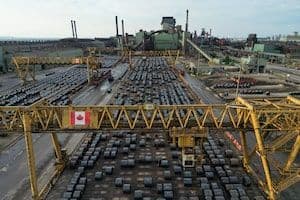
Canada's Economy Under Siege: The Real Impact Beyond Rhetoric
While the diplomatic rhetoric swirls, the tangible impact of these persistent tariff actions continues to weigh heavily on the . The imposition of a 35 percent tariff on a segment of Canadian goods, even those outside the framework, undeniably injects significant uncertainty into the marketplace. Businesses that rely on cross-border trade, particularly those in sectors now targeted by the new duties, face increased costs and diminished competitiveness. Previous tariff rounds, such as those impacting steel and aluminum, have already forced Canadian industries to "limp along," grappling with reduced profits and the difficult decision of whether to absorb costs or pass them onto consumers. The latest tariffs, coupled with the unpredictable nature of trade policy, create a challenging environment for attracting and retaining investment. Businesses thrive on predictability, and this constant state of flux makes long-term planning incredibly difficult. It's a stark reminder that even seemingly minor tariff adjustments can have ripple effects throughout supply chains, ultimately affecting jobs and economic growth on both sides of the border.
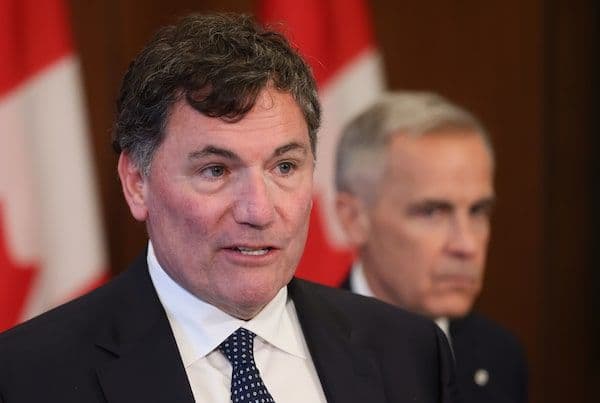
Diplomacy on a Tightrope: Ottawa's Push for a Deal
Navigating this complex landscape requires to perform a delicate diplomatic dance. On one hand, must vociferously defend its economic interests and challenge what it perceives as an unfair and misdirected tariff imposition. On the other, it cannot afford to alienate its most crucial trading partner, especially when a public health crisis like fentanyl is invoked. Canadian officials, including , have expressed cautious encouragement regarding ongoing discussions with their counterparts, including and . publicly stated her belief that a deal to lower tariffs remains achievable, highlighting commitment to securing greater certainty for investment. , while expressing disappointment over the elevated 35% tariffs, has reiterated unwavering commitment to the , signaling a desire to protect the foundational trade agreement. The immediate goal is clear: de-escalate the situation, remove the tariffs, and prevent the fentanyl issue from permanently poisoning the well of bilateral trade relations. It's a high-stakes negotiation where economic stability and sovereign policy on a critical social issue are inextricably linked.
Forging New Paths: Canada's Strategic Recalibration in a Shifting Global Landscape
The persistent unpredictability of trade policy, now further complicated by the novel use of public health issues as leverage, is prompting a strategic recalibration within . This ongoing tariff drama serves as a powerful catalyst for to diversify its global trade relationships and lessen its economic dependence on its southern neighbor. While the remains an indispensable partner, the current environment underscores the inherent risks of over-reliance. stated intention to actively pursue new markets, particularly in dynamic regions like Southeast Asia and beyond, exemplifies this evolving strategy. It's about building resilience into the , creating new avenues for growth, and safeguarding against future shocks from protectionist policies. This pivot isn't a rejection of the long-standing relationship, but rather a pragmatic recognition of a shifting global landscape where economic security increasingly demands a broader, more diversified network of partners. is adapting, seeking to forge new paths that ensure its long-term prosperity in an increasingly turbulent world.
Related Articles
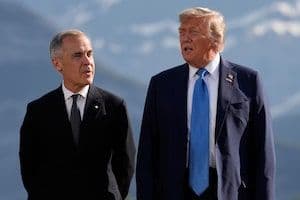
The Tariff Tightrope: Navigating US-Canada Trade Amidst Political Crosswinds

The Tariff Tightrope: Navigating US-Canada Trade Amidst Political Crosswinds

Trade Shockwaves: How Trump's Tariffs Reshaped Canada's Economic Compass

Trade Shockwaves: How Trump's Tariffs Reshaped Canada's Economic Compass
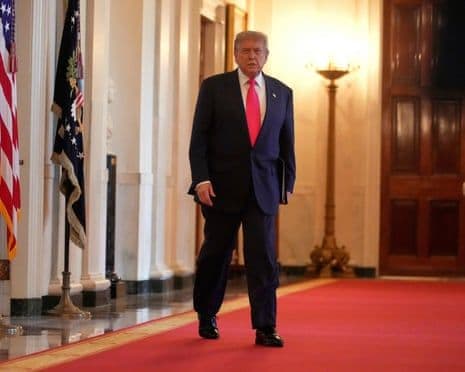
The Reciprocal Ripple: Unraveling Trump's Trade Gambit on the Global Stage

The Reciprocal Ripple: Unraveling Trump's Trade Gambit on the Global Stage
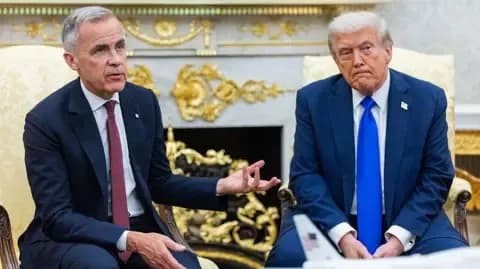
When Icons Clash: Reagan's Ghost and the High Stakes of Trump's North American Trade War
